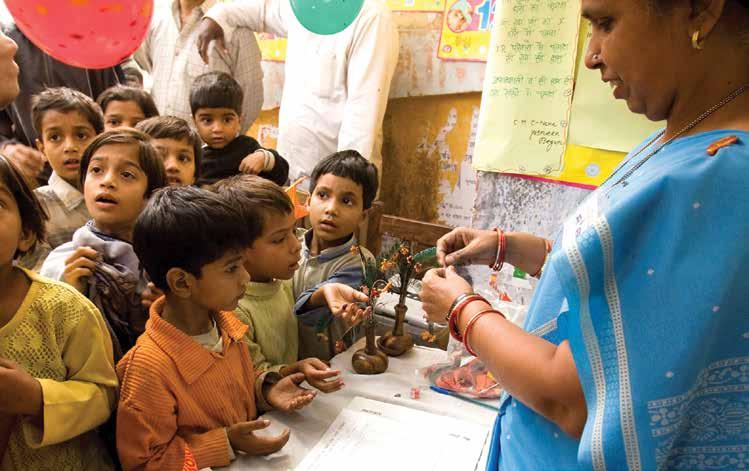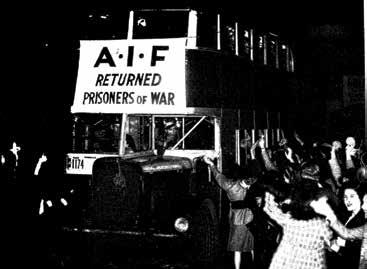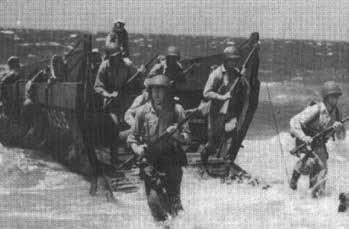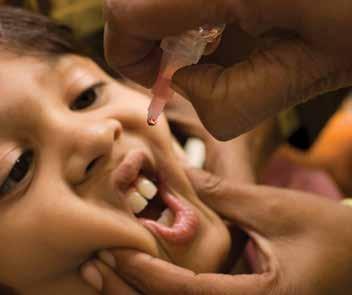
6 minute read
History
BITE SIZE Bits Of The WORLD and BRIBIE
...100 YEARS OF CHANGE & CONFLICT
Advertisement
Barry Clark
Bribie Island Historical Society
In the Twentieth Century we had two world wars, widespread scientific and technical development, as well as social, political, economic, and medical change. For readers now living in the peace and tranquillity of Bribie Island this article reminders us of significant world events, and the fortunate life most of us have had. In World War 2 Hitler build death camps in Poland in which 78% of Jews in Nazi occupied Europe were killed. More than 6 million innocent people, plus 5 million others who died in death camps during the Holocaust. The worst genocide in history. During that War 23,500 Prisoners of War were interned in prison camps right here in Australia, in which 18,000 Italians, 1500 Germans and 4000 Japanese were held.

BRIBIE AT WAR
The pre-war population of Bribie Island was just 250 people, and from this small community 10 men and 2 women joined the armed forces and two were taken prisoner of war. William Costin, a Bribie Island barman enlisted in 1940 aged 36, and was a POW in Changi at the fall of Singapore. William Lindsay, a Bribie carpenter had married Muriel Cotterill in 1935, enlisted in1940 and became a POW in Changi. He was also a Prisoner of War
later in Japan when atomic Bombs devastated Hiroshima and Nagasaki. He was liberated by the Americans, recovered, and returned to his family on Bribie in 1946. The War in Europe was finally won, but the War with Japan had to be ended with two atomic Bombs. This was the biggest and most destructive project to come out of wartime
research, but it eventually led the way to peaceful use of nuclear energy. Over one million Americans, including 100,000 African Americans passed through Australia during WW2. They were initially well received, but over time the glamour wore off as they were seen as “Over sexed, over paid and over here”. More than 12,000 Australian women became American war brides and most returned to the US with their new husbands at the end of the war. Bribie Island took on a vital role in Australia’s coastal defence and the port of Brisbane, after Japan attacked Pearl Harbour in December 1941. Military detection and Gun
emplacements were built at Fort Bribie and Fort Skirmish on Bribie’s Ocean beach, and many thousands of American and Australian troops went through the large Toorbul Point training camp where Sandstone Point Hotel stands today.
Following the 64 Japanese air attacks on Darwin in 1942/43 there was serious fear of invasion. Civilians on Bribie Island were evacuated, the military moved in, and a theoretical Brisbane Line of ultimate defence ran west from Bribie Island. The War came very close to Bribie Island in 1943 with the sinking of the Australian hospital ship Centaur by a Japanese submarine off Moreton Island.
ONGOING WAR

When World War 2 was finally ended no one imagined that Europe would soon face economic competition from Asia. Japanese products soon filled western households with cheap electronic consumer goods, then Taiwan and Korea joined the “Tiger” economies in 1960s, followed by China joining Asia’s economic miracle in 1980s. USA had defended its way of life in the Cold War against communism in 1950s and 60s, but their southern states denied equality to African Americans who did not get full voting rights until 1965. Until 1962 Aboriginal Australians could not vote in Federal elections unless they were ex-servicemen. A new Law extended the vote to all indigenous Australians, but it took three more years before they were given the vote in Queensland State Elections. By the end of 1960s Australia dismantled its White Australia Policy which had effectively barred immigration from anywhere other than Western Europe. China shocked the world in 1978 with a one-child policy to curb population growth and relieve pressure on
government resources. That was achieved, but it skewed the population so that men now outnumber women by 33 million in China today. Medical science helped people live longer and healthier lives. A Polio vaccine was introduced in 1955 progressively reducing Polio to just a few cases today, and a smallpox vaccine was developed after it had killed 400 million people in the twentieth century and was declared eradicated in 1980. After WW2 Britain partitioned India and Pakistan creating chaos as millions of displaced Muslims and Hindus tried to reach new borders. Thousands died, including Gandhi being shot by Hindu extremists opposed to harmony. Three years later in 1950 India gained its full independence from Britain, and east Pakistan later became Bangladesh. The British left India a divided and poor nation, but today the Republic of India is the world’s largest democracy with significant civil liberties and a free press. Ceylon, India, Pakistan, and Malaya became members of the Commonwealth in 1949, which now comprises 53 countries, with the four largest economies of UK, India, Canada and Australia making up one third of the world’s population. By 1945 America had the upper hand being the only nation with an atomic bomb. This did not last long as in 1949 the USSR developed its own atomic bomb. Within a few years both sides created Thermonuclear bombs, whose explosion was 500 times greater than that dropped on Japan to end WW2. By 1962 both sides were armed with enough missiles to wipe out the entire world. In 1972 President Nixon visited China and the Soviet Union and the first Strategic Arms Limitation Treaty (SALT) was signed in 1979. Sadly in that same year USSR invaded Afghanistan and tensions resumed. American President Ronald Reagan took office in 1981 and increased military spending and Strategic Defence Initiatives known as Star Wars. The USSR could no longer match USA in the arms race or global influence and dismantling of the Soviet Union began soon after. Chinas transformation to a global economic giant began after Mao’s death in 1976 when foreign companies were invited to invest in China for the first time. Standards of living increased for 400 million people moving from country to city for work, but in 1989 tanks were turned on democracy demonstrators in Tiananmen Square.

TODAYS WORLD
In today’s world traditional colonial occupation of overseas territories has been replaced by dominant countries taking cultural, economic, and social control over dependent nations using capitalist systems of trade and globalisation to extend their power and influence Life expectancy in Europe in 1900 was just 47 years and today it is has risen to an average of 78 years, and even higher in Australia at 83 years. Different for men and women of course in different countries and circumstance, and here on Bribie Island we seem to have the highest average population age of any postcode in Australia. That must mean it is a pretty good place to live a long time.
MORE BRIBIE HISTORY
Historical Society monthly meetings are second Wednesday of each month at 6;30 pm at the RSL Club but there is no meeting in January. See more stories and photos of Bribie history on our Web Site Bribiehistoricalsociety. org.au and Blog Site http:// bribieislandhistory.blogspot. com or contact us on bribiehistoricalsociety@gmail. com







